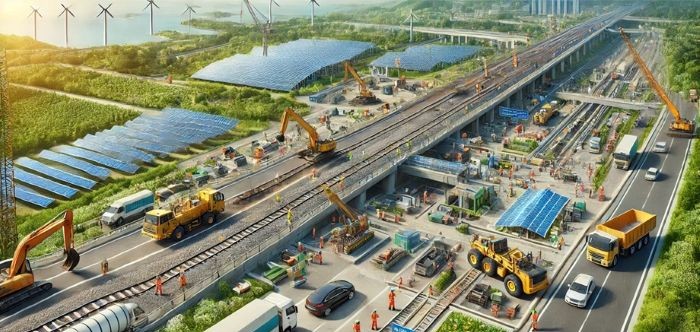(3 Minutes Read)
The flagship project will invest in modernising the road along the strategic N’Djamena-Douala corridor, linking Chad, a landlocked country, to Western and Central Africa.
The European Union is increasing its economic presence in Africa with a significant €40 million investment to modernise the Douala–N’Djamena trade corridor. This vital route, connecting Cameroon’s port city of Douala with Chad’s capital, N’Djamena, is a critical economic lifeline for Central Africa.
Koen Doens, Director General for International Partnerships at the European Commission, highlighted how this investment, part of a broader EU-IFC (International Finance Corporation) guarantee mechanism, aligns with the EU’s Global Gateway initiative to enhance sustainable infrastructure development worldwide.
Koen Doens emphasised the importance of the Douala–N’Djamena corridor extends beyond trade, noting its potential to foster regional integration, create jobs, and promote stability. He pointed out that the European Union increasingly views Africa not just as a recipient of aid, but as a key partner and promising destination for strategic investment.
The flagship project will invest in modernising the road along the strategic N’Djamena-Douala corridor, linking Chad, a landlocked country, to Western and Central Africa. In Chad, mobility relies heavily on the road network, which serves major trading centres and cities, with the corridor representing over 40% of Chad’s population and GDP.
The intervention involves the rehabilitation of 229 km of the 596 km-long corridor between N’Djamena, Koutere, and Moundou (an 1800 km strategic corridor between Douala and N’Djamena) and the construction of a new 72 m bridge in Moulkou, four weighing stations, and six rest areas, as well as a significant technical assistance package, including an analysis of gender-related risks and opportunities, road safety, and climate resilience. The interconnection of transport infrastructure also contributes to the agenda of trade integration and enhances competitiveness in Central Africa.
Read Also:
https://trendsnafrica.com/saudi-arabia-to-fund-cfa-288-bn-to-build-two-road-projects-in-cameroon/
The modernisation of the road is part of the Team Europe Initiative, Green Secondary Cities, which includes various other EU transformative interventions in renewable energy, agri-food value chains, TVET, and job creation. Additionally, under Global Gateway, an EU-funded bridge over the Logone River was recently inaugurated, opening a new official trade point connecting the border towns of Yagoua in Cameroon and Bongor in Chad.





